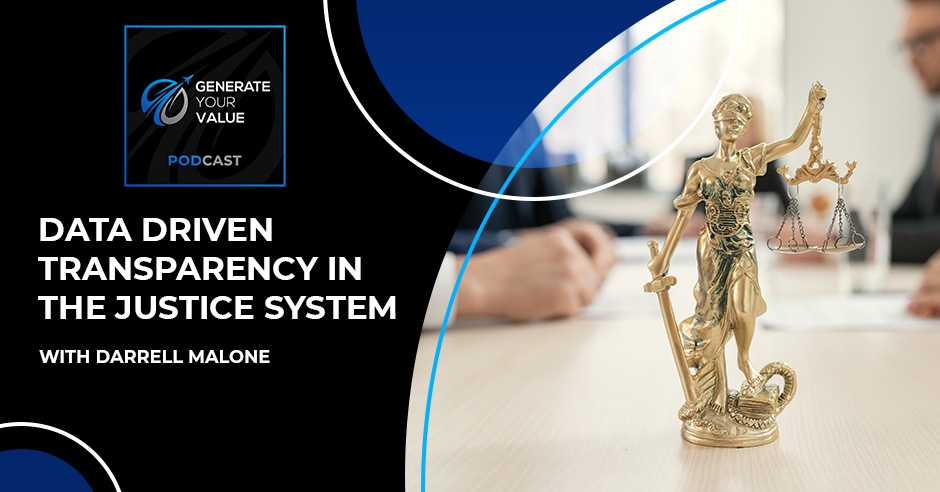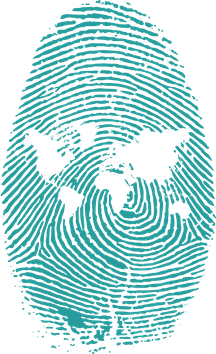Explore the intersection of justice and data-driven transparency as we uncover a transformative shift in the legal landscape. In this episode, the founder and Technology Director of the National Police Data Coalition, Darrell Malone, discusses all about civic duties, media truthfulness, and the societal responsibilities that underpin our democracy. He touches on the flood of overwhelming information in today’s digital age and how we can best handle it. While shedding light on the corruption, fake news, and other horrible aspects of it, Darrell also brings constructive solutions. Darrell emphasizes the timeless importance of generating value and positive impact, especially when dealing with something as heavy as the truth. Tune in now!
—
Listen to the podcast here
Data Driven Transparency In The Justice System With Darrell Malone
I have a great conversation for you. We are going to go a little bit more on the business side as opposed to the leadership side with the guest that I have brought in for us in our discussion. If you are an avid reader of this show, you know that I’m a big fan of system of systems and strategic talk in business. We are going to get into that in an industry that you are probably not thinking about now. It’s in the news all the time, but you don’t think about it from a business perspective. That’s going to be an instant element of our conversation.
My guest is Mr. Darrell Malone. He comes to us from Houston, Texas. Darrell Malone is the Founder and Technology Director of the National Police Data Coalition. He’s a Senior Software Engineer who has worked on projects in the digital identity space or customers such as the Bill & Melinda Gates Foundation in the Department of Homeland Security. Darrell has been involved in civic tech since 2017 when he founded The Tubman Project in an effort to spread the development of AI power tools for public defenders. His commitment to the protection of human rights and justice continues to drive his work in digital technologies. Darrell, welcome to the show. I can’t thank you enough for taking time out of your busy life to join us.
Thank you for having me. I’m happy to do it.
I mentioned for the audience the justice system. We don’t think of that from a business perspective. We think of it from a civic side, something that the government function that takes care of us trying to provide safety to members of the community. Let’s start as we do about life stories. If you could take a few minutes to fill our audience in on elements of your life story and how it is that the justice system became of interest to you.
I grew up being steeped in a lot of the civic history of the United States. My family was related to Malcolm X or Malcolm Little on my mother’s side. My grandmother knew him. We have this history in our family of being very active and engaged. I was more about the history of the struggle by reading Langston Hughes, Du Bois, and things like that. It was always in my mind as I grew up and started to work in the professional world. I’m a self-taught software engineer. I initially got into the space through gaming. I was very interested in wanting to develop games and creating things in that way. Eventually, I got more interested in entrepreneurship as I hit 19 or 20 years old.
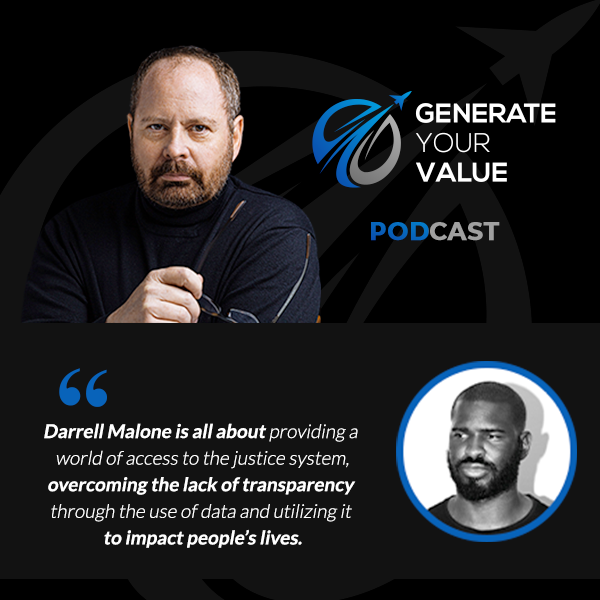
I started to get interested in wanting to own a business, start my own business, and learn more about that world. I moved to Austin, Texas, and got engaged in the tech scene there. Once I established a little bit of my career in the space, I went on to become a digital nomad. It was traveling the world. I spent two months back at home in Houston, Texas, and the rest of the time I was out and about and learning and trying to understand as much about the world as I could with different languages and different cultures.
I spent time in Europe. I still had that same level of interest in the civic world, and so I saw the different discussions that were happening there and how all of those countries managed the post-World War II world as there were empires turning into nations and breaking the part into separate nations and things like that. Around that same time as when I started The Tubman Project. At that time, the level of engagement that I’d had with the justice system was more or less police. I have had a gun to my head three times in my life, different times with police officers and different places in the United States.
Mind you, I’m a software engineer. My normal activities on the weekends are board games and things like that. It’s an aberration. From that and the rest of my history, I was interested in the world of the legal space. I started The Tubman Project partially because I was interested in artificial intelligence technology. That was more of a deep learning time. It was before we knew what transformers would end up doing, but I was already interested in the idea of AGI and how more generalized systems might emerge and how they might work.
To get a grounding in the space, I wanted to try and apply something that would be practical. The justice system and the world of access to justice for me felt like something worth exploring and seeing what could be done there. There were a lot of interesting things that I learned through that. I ran a lot of the hackathon so I saw a lot of different projects that came through. We had some things that were being done with computer vision and things that were being done and the data security space.
From there, when 2020 hit, that made me even more focused on the aspect of police and the role that they play in that world. It also gave me a real appreciation for the dearth of data and the lack of transparency that sometimes exist in the legal system, and that holds back the development of different things and even the ability for attorneys to serve their role in pushing back against unchecked government power and how that can impact people’s lives.
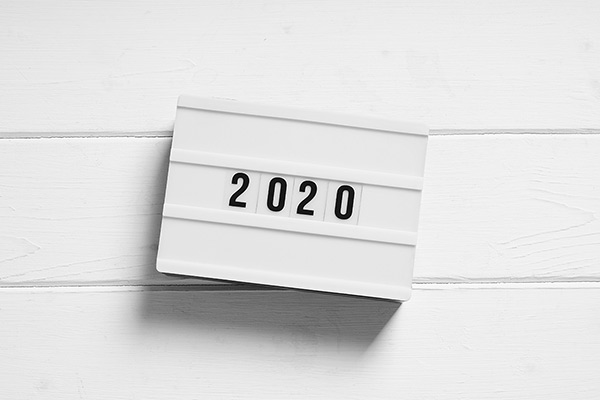
That culminated in me starting the National Police Data Coalition, which is the project that I’m running which is focused on exactly that area of data and being the last mile for where the rubber hits the road, which is the legal system and ensuring that they have access to data that’s relevant to these kinds of questions of civil rights and justice.
Your family background has a history on the legal civic side, but was it having a gun put your head three times or was there some other major life event that moved you into a focus on the justice side with your IT skills?
The biggest life event and focusing point was certainly 2020 and the George Floyd protests and everything that was happening there. That had an impact on my life in a number of ways. It was right during the pandemic. Like everybody else, I was impacted. Since I was a digital nomad at the time, I was living in Berlin, Germany, and I had been in the process of becoming a permanent resident.
With everything that was going on with COVID and everything like that, I decided to come back home and spend more time at home, and because of that, I was there in Houston when a lot of the turmoil was happening. Those who are familiar with the situation know that George Floyd had a strong connection to Houston. He’s from the community here.
All the people living here in Houston were obsessed with this. Houston is a place with a lot of Black wealth and power. It’s one of these places that, because of the light touch that was taken here and the number of Black residents that were here post-civil rights, reconstruction, and everything like that, there’s a lot of political action and energy that was going on here which, at the time, I wasn’t fully aware of. I wasn’t as entranced in the community.
I already was seeing the action that was being taken and then that combined with the experiences that I had made. It made me ask questions and start thinking about what was something that could be done with my skills in technology to help in this particular problem. I heard the call and I was like, “Is there something that I can do here?” Through that engagement and discussions, that’s what led me to the place that I am now with the organization.
Just so the audience knows, I live in the Atlanta, Georgia area. Atlanta is a lot like Houston from the perspective that we have a lot of Black wealth here. The African-American communities are very active in politics on the civic side from that perspective. I have an idea of what Houston is like. What has all this experience taught you about yourself and about your mission and purpose or why in life? Has it helped formulate or expose it and take those layers back for you to say, “This is how I want to devote myself in my life moving forward?”
It’s made me think about myself and my motivation as you go into something like this. I listened to one of your past episode hosts, and he mentioned that starting a nonprofit is a three-year process in terms of the time that it takes to go forth and build something like this. I understand that having gone through it. We are several years since we officially founded the nonprofit.
Through that time, you have a lot of these challenges. You have to come back and think, “Why am I doing this? Is this having the impact that I want it to have? Is this the way to go about solving this particular challenge?” Through that process, there’s a lot of introspection. There’s a lot looking around and understanding how your organization is working as you are bringing people into the organization. You see where they are passion is coming from and how strong their devotion is to what you are doing. That even makes you more want to redouble your efforts and try to support the group that you have brought together and started to build.
Coming from being a software developer, the type of person who goes into that field, especially Apropos of Nothing like not coming into it, I wanted to learn about this in college and things like that, but through curiosity as someone who’s pretty comfortable spending a lot of time alone, being very happy, going through the documentation, trying different things, and living in a very mental world.
It is going from that into founding a nonprofit, which is an extremely social act. One of the biggest challenges that I have is posting on social media because it’s super important. You have got to do it, but at the same time, I’m a pretty private guy in my normal life. There are a lot of these aspects of myself that I’m trying to learn to embrace, bring out, and become more comfortable with.
That comes from more engaging in this. It taught me a lot about where I was before and where I considered myself pretty outgoing from my milieu and context. I have had to learn what it means to lead and how much work I had to do to develop that skill and to be refined in that sense in order to get this organization to where I want it to be and where it could be.
You are at the stage where a lot of people who weren’t exposed to leadership at a very young age think of leadership as the title and the salary. They talk about the authority side of leadership by what that title gives you, but they don’t know a whole lot about influence and how is it from leadership where you have got to establish a vision, get people engaged into that vision, and make sure everybody is walking down the same path in the park to get you to where you are going. That’s the most difficult side of leadership for people to embrace and get their hands around because it’s work. Human beings have all different personalities and see leadership in different ways. You have got to figure out a way to maneuver around that so that everybody gets lined up on the same page.
It makes you appreciate those guys like Steve Jobs or Elon Musk who can hold a vision. I picked those as examples because theirs were in the more extreme sense in terms of the way that they are reshaping how people looked at some of the various objects in their lives. To build an organization of people who can see that with you and follow you in that process is a difficult task to know how to communicate that and get that solid enough that people could put their time day after day towards it.
The main thing that I coach my clients on is you have to be able to answer the question why. We are doing this and here’s our strategy. Why? It’s because people need to understand the why to figure out how they fit into the picture. Nobody wants to waste their time. They want to understand their contribution to the cause. In order to do that, they have to understand why we are doing this and then they can fit themselves into the story to what that why is.
Let’s move away from you and start talking about your coalition and what you are trying to achieve. When you and I got together, we had a conversation about system of systems, which is a favorite topic of mine. In my Boeing days, I was trying to get Boeing to buy into this notion and embrace it in order to build or have new business opportunities. A system of systems is trying to take different actors within an ecosystem. For mine, it was the whole aviation system. For you, you are looking at the whole justice process or justice system that has different actors.
Mine had different actors and each of the actors is creating different data or different content that participates or is used in the ecosystem. Not all actors have access to the data that’s being created by the other actors. If they had that information in their hands, they might be able to make better decisions. They are not making perfect decisions because they don’t have access to all that data. Would that be an accurate description of what you are facing in your nonprofit to try and address?
Exactly right. The justice system is, in essence, an information-gathering game. It establishes an adversarial system so that different parties come to the table. They come to a judge who’s there to analyze and understand the evidence and then issue a ruling that will inform future judges and future cases about how the world works.
The justice system is, in essence, an information-gathering game.
It is in the best public interest.
Exactly, and what is going to be in the public interest. That process is informed in prime part by the attorneys who work there. They are the ones who manage the teams that bring those backs to bear. From my perspective looking at the system and how difficult it was, in some cases, for people to get justice through that system when the damage to justice was coming from the government itself, it became evident how almost all the pipes were set in such a way that they were built-in clogs.
Take the criminal defense system for example. If you look at a place like Massachusetts, they have a Statewide Public Defender system. What that means is that all of the public defenders are linked. They are able to share information on cases and, as things happen, they are able to deal with it. To give you an example, there was one called Annie Dookhan who was a crime lab scientist who was found to have falsified evidence against people to make cases go through faster.
She would falsify evidence and say that there were traces of DNA, where they were, and things like that. Once that came to light, there had to be an effort to go through those cases of people that she had helped put away and understand whether they were meant to be there or not. Were they guilty of the crimes? The district attorney went through, did their examination, and said, “Here are the people we found that have been impacted by this particular scientist.”
As they had a connected system, the Massachusetts Public Defender System was able to come back at that and say, “We have the records of the cases that have gone through that were prosecuted by this DA and we can see that there are all of these missing people that haven’t been found.” Perfectly, it could have been a clerical error. There are a lot of ways that something like that could happen.
As you have this ability for the advocates of the people at large to make a case to try and get justice, they were able to make it happen. In a system like Texas where I live, for example, that couldn’t happen. We have an Indigent Defense Commission that exists here, but at the same time, there’s not anywhere near the level of coordination possible and data sharing to make those kinds of things happen.
To have that same level of ability to ensure that the right thing is done, you’d have to get universities involved and you had to get all these other actors there, which most likely is going to happen long after the damage has been done and keeping people that should have been free in prison for much longer than needed to happen.
Keep in mind, even in the justice system now, a lot of the people who are imprisoned are pretrial. We have an issue here in Harris County where we are having to send people often to other states like Louisiana and now Mississippi because we have got so many people here many of whom are pretrial. They haven’t even had a chance to have their day in court. That’s another issue in itself.
It becomes imperative to make sure that you have this level of transparency available so that we can prevent this damage that gets done to people because these are people’s lives. This could be people losing their lives and freedom and being held up in the system unable to get jobs. The amount of personal damage that gets done when you have these breaches, to me, is intolerable.
That ability for attorneys to have that complete picture, so that they can prevent these kinds of abuses from happening is the goal that we are trying to achieve with our organization both in the sense of having the criminal defense aspect of it, of being able to prevent people from getting sentences that they shouldn’t have got, and those sorts of things. Also, on the other end the civil rights side where people can then go and get back damages when they have had things happen.

Both of these two are places where rubber hits the road in terms of actual policy change. That’s where you start speaking the language that becomes easy for governments to understand. You can make a case for, “If we don’t solve this, we are having real damage being done to the citizens of the city, the budgets, and things like that, that pushes for change to happen.” For me, that’s where the legal system is so important because that is the system for understanding and making better policy decisions going forward.
In my world in aviation, I was pushing for this approach such that in the air traffic control world, we would move from a reactive culture to a proactive culture. Traditionally, an air traffic controller doesn’t start dealing with an aircraft until it arrives in this sector because he doesn’t have access to any information prior to that event occurring. If you start building a platform that connects all these actors and they have access to information about that flight before it even hits the sector, he can start influencing the trajectory of that aircraft before it hits a sector such that a more efficient outcome happens for all parties involved in that sector.
I’d have to imagine that approach in your world and the justice world is not only for better decision-making and better outcomes for the public and individuals, but it’s also for ethical reasons. It’s for transparency. It’s for holding people accountable. Tell me if I’m wrong here. You may have some actors that don’t even create the content or would even put it in the system if they thought it was not going to fit their agenda. In other words, there has to be policy, laws, rules, or processes that says if this piece of information is created or becomes available, you have to put it in the system and make it available to all parties that have access to the system in order for the outcomes that you want to be achieved happen.
A great example of this is there’s a prosecutor in Philadelphia, Larry Krasner. When you are elected as a DA, they are becoming these two dichotomies. You have people who are coming more from the prosecutorial background and then you have people who are coming from the world of public defense and things like that or have some history there. Larry Krasner was one who came from the public defender angle. One of the things that he did was he was able to release what they call a Brady list. Police officers, if they have any misconduct or any breach of the rights of civilians, generally, it’s what’s called a Brady violation. It’s a blanket term for these kinds of things.
A lot of DAs in larger cities will put together Brady lists that have lists of officers who are known to maybe have some troubled history and things like that. These are not made available to the public. They are very interesting information to the public for sure and most certainly to the public defenders, but they are not always released or not even claimed by the DAs that have them for exactly the reason that you mentioned. You don’t want to release content that’s going to hurt your case.
In an adversarial system, that makes sense. You have this process through which you have privacy and laws that protect you and communications between your attorney. There are understandings. You have the Fourth Amendment. There’s an understanding that the same level of privacy is necessary in the society, but at the same time, what we didn’t have was anything on the other side that had the level of coordination and purpose behind it that you have. For example, in a DA. You can take that up to the Department of Justice as a whole. The goal of this organization was to be that counterbalance, to act as an independent source of information about police performance and about the access that the public should have to police data.
Can you give our audience an idea of how underserved this notion is in the justice world? How long is this pole in the tent that you are going after? We have got great participation in this part of the country and not so much over here, or is it like the whole flipping countries in bad shape and we have got a long road to hoe here before we achieve our goals?
There’s a ton of interest. A lot of it was spurred by the events of 2020. It’s funny. There was a study that I read about the impact that protests have on public policy. The findings were essentially that there’s about a two-year impact for a protest that feels sufficiently localized and that has real engagement from that community. That’s about the time that you have a lot of action take place when you have something like George Floyd or some of the more local protests that happen. That’s led to the situation we have now where places that had the political alignment to push things through do some of that whenever these events happen and then other places where that power doesn’t exist where a little happens.
You have, for example, New York, which has passed 50 A-Laws that make it required for a lot of police departments and things like that to release this data, and so we have seen a lot of this data be released in New York State. You have places such as Texas and I keep using it because I happen to live here. I know a lot about the political situation here. Nothing against Texas. I love the state and everything like that. Being a border state and being more of a red state becomes a lot harder to have that level of action. You have correspondingly not the same level of transparency that exists in some of these places. There are some that work hard to do that. Chris Vallejo in Austin, I share a board with him.
In another context, the Texas Justice initiative, but the Austin PD has worked hard to work on transparency. Houston Police Department has been vocal in some senses and has worked to try and release data. That can’t be said for the majority of police departments around the country, but we are working hard to try and establish those relationships.
One of my goals is to try to establish that we are not out for any particular agenda. We are out for transparency for its own sake. Part of the idea behind creating a coalition was to bring all of the different people who are interested in data about police departments to the table so we can work on common standards and common understanding and make sure that we have a common language for dealing with the problem.
We’re not out for any particular agenda. We’re out for transparency for its own sake.
To me, it is a problem that we all have a stake in. We all want to have a system of policing that’s both effective and will prevent doing more damage than it’s setting out to cause. Crime is a real problem. We don’t want to have it. We want to have order in our society but crime can also be committed by people who have badges. That’s something that we have to grapple with as well. We need to make sure that we have this ability to deal with crime both in the official capacity as well as in the private sector.
As long as the justice department is driven by human beings, we have to deal with you and being behaviors, motivations, egos, and everything in that nature. We are going to be faced with this problem. In areas of privacy, I have to imagine that’s one of the things that your coalition is grappling with in terms of the privacy of victims, the privacy of those who are accused, and so forth. How high of a level are the privacy concerns in the coalition it turns to what’s trying to be achieved? I have to imagine it’s all the medical industry. You have privacy concerns.
From the very beginning, that was the paramount issue. You are dealing with people who are in probably some of the most stressful situations they are going to be in their lives. That’s the reality of these systems like policing or healthcare where these are not going to be your best moments necessarily. Privacy is huge both for the officers and for the civilians involved. One of our guiding lights is that things for us should be taken care of through the justice system. That is of critical importance. We have no interest in participating in any form of retaliation both of officers or civilians who might be represented in the data.
This idea that we become this library where people can then go and look up people to have grievances against and things like that is the number one thing that we want to avoid. One of the primary concerns that we have from that aspect is making sure that people, in general, are protected. People aren’t at risk of losing job opportunities, being harassed, or anything like that if they are seen as victims or of people who have reported incidents and things like that. We don’t want police officers to have anything against them when they are doing their jobs and when most of them are trying their best to do things the right way. That’s a primary concern.
Due to the world that we are operating within the legal system, there are also data privacy concerns that come into it from that angle. I mentioned the right to privacy between yourself and your attorney. There are different laws around how data can be released about things that come from police departments and things like that that change between states and all that.
There are different ways that Freedom of Information Acts can be used and that applies. Anything operating within that legal context, you have a lot of these challenges that come through and that we have taken head-on. Our first goal was to understand how we can approach these issues and develop our technology in a way that is supportive of people’s privacy all the way through.
What resistance have you faced in talking about this notion to the actors in the system? When I approached and talked to airlines about participating in a system of systems data sharing approach for air traffic control, their biggest concern was the release of what they considered to be competitive information to other airlines. That’s one former resistance that I faced in trying to push this notion within the aviation industry. In the coalition, where have you faced resistance, or if I had concerns from actors that might participate in it?
We have had a fair amount of support from a lot of the people that we have been engaged with from people in the Department of Justice, from people who are former police officers, people who are attorneys in the space, and things like that. I would say the concerns that I have heard have been, a lot of times, from people that I have discussions with like talking about the project and the work that we do and everything like that.
I haven’t gotten a lot of official pushback yet. We are relatively young. I’m cognizant that could change at different points in time, but at least for now, we have been able to be good about communicating what we are doing in a way that we haven’t gotten a lot of that. The concerns that I do get are generally around what I mentioned before this idea about maybe not so much retaliation, but that officers could be unfairly maligned and things like that.
Are we paying enough attention to the positive things that happen and things of that nature? That’s been primarily where people have been concerned. For that, I have to say that our organization is not necessarily tied to finding any particular outcomes in data. Our interest is in providing infrastructure for these conversations to happen and a place for that discussion to take place in an environment that’s secure and prevents a lot of the potential negative externalities of that debate taking place.
From an official standpoint, we haven’t had, for example, any legal battles yet in terms of whether we are allowed to work in particular areas. I know that those are challenges that a lot of groups faced and have fought generally. There’s been a lot of positive movement when they make those challenges. One of our advisors, for example, is out of Chicago. They had a long series of struggles with the Chicago Police Department to get data released.
This was the Invisible Institute which founded the Citizens’ Public Data project there in Chicago. We have a lot of legal frameworks that are on our side of working towards this idea of transparency and of public interest data being available to the public that I want to leverage and make sure that we are part of having a more transparent democracy. That should be uncontroversial.
That gets to the harder root of the whole Freedom of Information Act conversation and foundation. One of our concerns in building an aviation foundational system is one of your actors is the government because it’s the government function that manages the resources, the assets, and the actual airspace that users are using.
From a policy or legal perspective, you want to keep it as a closed system per se for security reasons in its daily operations, but how much do you allow the public to come in and get into the minutiae of what’s happening? I could see that that would be a concern as well on this justice system data-sharing platform where you want to keep it tight and internal so that the system can function well for the court system and so forth.
How much do you open the lid per se to all the minutiae of details in it to the public where the public can come in and stir the pod on things and can bring the system and the purpose of the system to a grinding halt because of bureaucracy and their desire to want to know things? As an end game, it doesn’t cause the system to improve. It’s noise that brings the system to a halt.
It’s one of the reasons we tend to focus on the legal community because their role is to engage in that process and to marry that raw data with the understanding of the laws and processes of the country. As you might imagine, I’m also very much a systems thinker. That is 100% the way that I approach the world. I look at the justice system as a process and with these constituent parts and try to understand how you get good information in order to get the right outcomes out. Having transparency available is of primary importance to me. I’m not a big fan of the idea of creating these wild gardens and the idea that the people have a right to know that this shouldn’t be too much and that type of thing.
At the same time, you do want to operate in a way that allows the justice system to do its job. Even within that, we have this understanding that there are certain ways that we need to protect that process. There are laws around how juries are able to behave. There are laws around how different people are able to impact that process rules for when judges need to recuse themselves because of things that may exist in their backgrounds or ways in which communications need to be protected.
All that is something that we have worked on as a nation for many years. I have studied the history of what that semi-scientific process has been able to achieve and allow human beings working within it to achieve. I have a lot of respect for that. My hope is that this same system will carry us through the challenges that we face in the future. I want to do my little part to improve that process if I can.

At some point, you are going to have to answer the question about some independent oversight so that those power struggles don’t exist or manipulation in whatever processes get established. We are very fortunate in the aviation side that we have a division of the United Nations. A headquarters up in Montreal Canada works in that function with representation from all the countries to establish international standards for aviation flight.
It’s a sounding board for anybody who can bring a concern up like at the United Nations in New York City work through the issues and make changes to standards to address the issues and keep moving forward and growing from that standpoint. We move to this system over on the justice side. Is there some federal and then, eventually, international organization that can be that independent like a KO is on aviation? The UN is on the aviation side that can help maintain the integrity of such system.
It’s tough because you want to have that oversight exist in such a way that it can serve that function. We have got a lot of oversight bodies, including the one that we have here in Houston where we have got a civilian oversight and review board. It has no power or teeth. Therefore, it has no impact. We see that at all levels. Go all the way up to the United Nations where a lot of people see that as a talking shop. That doesn’t have any impact and ability to solve problems because it doesn’t have the authority to solve problems. At the end of the day, constituent nations are going to do what they are going to do. There’s not so much you can do about that unless you are going to apply hard power to change that.
The challenge of our time is to come to some ability to tackle these tough ethical challenges that are paramount. You have this story of a system coming across the physical boundaries of the world. You think about the idea of climate. You think about the idea of how population impacts that and how the way that we live as a whole and in certain parts of the world can impact the way people live in other parts of the world.
There’s a challenge built into that for how we move to the next stage and how we allow ourselves to live together on this planet sustainably in a way that is just that is being fought out now. My hope is that we can come to that new equilibrium in a peaceful manner. The idea is that we have another war to come to a new system. What’s the point? Who’s going to be there after that? We have got to find a way to solve these tough ethical challenges and create systems that can make these decisions in a way that’s respected by everybody who has to obey those rules and respected enough that all are subject to the same laws in the same way, whatever scale that is.
We can’t live in a world where might makes right and the ability to have the power to enforce what you say is the only thing that matters. We do have to start to come to a place where we feel comfortable creating bodies that will be those arbiters that have buy-in from all of the different parties and are able to make determinations. For our context in the United States, we hope to be a part of that conversation. We hope to be a part of establishing some way that the people are also involved in the conversation of how there are police with some power to make changes to the way that is applied.
We can’t keep going in a world where might makes right.
Now, that’s very indirect. We can elect a DA. We can elect people who will then appoint other people who are tasked with these problems, but we don’t necessarily have this bottom-up ability to impact and improve the way policing takes place. That’s going to have to come with a lot of trust from people in positions of power that if they allow for more of that outside inspection, independent inspection, and influence over how those decisions are made, that we are still going to have a safe and coherent society on the other end.
It’s something that our leaders should have the courage to do. It is to embrace the idea of democracy that is ruled by the people. We have the ability to be involved in this conversation at a high level. We have this consistent issue of being afraid of the specter of populism or of this different way of approaching problems that result over and over in these surprise elections and all of these different things that people are shocked about. In a sense, what has been so interesting to me is how often the general idea for how to approach things which may not necessarily get the time on the airwaves that it should has often been on the right side of history.
As we have looked back and as we have gone through and seen some of the different issues that we faced as a country, how we could have solved those things, and how we ended up solving those things, we find that the people had a good idea of what the right approach was. I truly believe that the more we start to open up these systems and allow for public involvement, the better it gets, whether that’s participatory budgeting and the ways that happens up to the systems that we have been talking about.
When I think about the business world, in Boeing, we used the words responsibility, accountability, and authority for a citizen of this country in the Democratic Republic that we have set up. We are responsible for placing a vote one day every four years. Nobody holds this accountable to it. Nobody says you have to show up to vote.
It’s your responsibility as a citizen, but nobody holds you accountable. Your authority is simply to place a vote. In the collection of votes, we are putting all of our trust in the majority. The majority means the majority of the votes to pick somebody to be our representative that we are giving full trust in to go up and represent us in the government and make all the decisions. There’s a lot of frustration in our country now with the way things are going up in DC, but all we can do is talk about it because our authority only comes 1 day out of every 4 years to place that vote.
I would challenge that. Here is one of the reasons that I started this organization, and this is not to say that everybody should go and found a nonprofit tomorrow and everything like that. To me, civic action has to be more than just a vote. The people who founded this country were interested in politics and the ideas around this already on their own through their experience being here. They were having those discussions. The idea that you have a society that is engaged in a real way with these challenges and these questions is a beautiful thing. That’s a thinking society.
Civic action has to be more than just a vote.
That’s a society that’s coming to better and better positions over time. That has to be done on a regular basis. I have heard some big-name people references. The most surprising one to me was Martin Wolf, writer for Financial Times. He came out with a book that had this concept embedded within it. Some level of jury system for policy creation where you have this House of Representatives that is chosen by a jury lottery, and so that you have a real assortment of different perspectives and ideas providing, if nothing else, some moral assent to policies as they are being passed and things like that.
It would almost bring home the idea that, “Yes, you have rights, but you also have responsibilities.” That’s extremely important. Being part of a democracy is a responsibility. You have a responsibility to your society to be engaged and inform yourself on what’s going on and how you impacted and impact others.
That’s a part that’s being lost. That was part of what I was trying to say in my comments. We do have a responsibility. As they are not held accountable in any type of way, there are a lot of us who don’t act responsibly and being informed enough when it is time to go vote or to be influential on the non-voting days, to express an opinion to help people understand, and to voice an opinion that helps shape the direction of the future of the country. It’s all of our responsibility as a citizen to be active in appropriate ways. That’s part of the reason why we have lost our way and why we have such a divisive country. We don’t have enough people who are being responsible enough on non-voting days to be active in what kind of country we want.
It becomes hard. We do have a real fire hose of information that we have available to us now. We have these different algorithm systems to try and navigate that.
The problem is trying to figure out what is true and what is not, much like what you are facing in the coalition about putting data out there is to make sure it’s all factual and truthful so that appropriate decisions can be made we would face the same thing. We are facing the same thing now as to what is factual and what is not.
We have to have a system for interpreting that. While the legal system does some of that in these specific cases and in the framework that’s put together for that, in the public sphere, the media is a big part of that process and we also have them engaged in the coalition as well. I have some understanding of what’s going on there and the real challenges that exist even in that space.
Even upholding journalistic integrity. We used to have this world of journalism where you are expected to have multiple sources that you could call on for a story and things like that. Nowadays, you get something unofficial from somebody high up and that’s enough to go and run a story that months later turns out, “That was complete BS,” and we have told that to millions of people over the airways for months and months.
There’s no accountability for that. There’s no, in that space as well, the ability for that turnover or change to happen and for those processes to be improved. What ends up happening is people who are engaged and interested go and they create new organizations and new institutions that effectively push the older ones out of their positions. That’s a healthy process. It’s something that needs to happen. It’s difficult to create these sorts of things and it’s going to take a lot of us being willing to spend those years to start a business, to start an organization, to understand that process, and bring people together for that to happen.
I could talk to you for hours about the stuff, but unfortunately, our time has come to a close. What is the best way if somebody wants to help you with a coalition or engage with you to understand more about what’s going on and so forth? What’s the best way they could connect with you?
You can find me on most platforms under the username Darrell K. Malone. That’s Twitter and Instagram. All that good stuff, you can find me there. You can find our organization at NationalPoliceData.org. You can join our mailing list there. We also have listings for the different volunteer opportunities that we have available, whether that’s coming from the testing aspect, designers, or software engineers.
We build a lot of our technology in the open source, so you are able to contribute to us in that way. We have internships that we make available and things of that nature as well for people who are more on the organization building, the legal, or the data aspect of things. Check us out there, join the newsletter, and be on the lookout for different opportunities that we post there. @PoliceDataCoal is the social media handle for that organization. We’d be happy to work with you.
I can’t thank you enough for coming on, informing, and engaging with our audience to understand what you are trying to achieve. These are great things. We have one last question for you. It’s a question we ask all of our guests. At the very end, we like to collect all the answers and see where that golden thread that runs through all the answers is. The last question for you is what are the words generate your value mean to you?
Generating your value is taking stock of what it is that you can bring to the world the positive impact that you can have on other people’s lives and doing the work to make that a reality. If you are willing to do that or if everybody is willing to do that, we get to a much better place. That, to me, is where the value comes. It’s the benefits that you can bring and how you can help those around you.

Through your relationships, your work, and your products and services as a business. There are different shapes, colors, and sizes to the value that you can generate in the world. For the audience, I can’t thank you enough for reading this episode. I don’t know about you, but I learned a lot. We went a lot longer than I anticipated in our conversation because I had a good time enjoying and learning something more about the justice system in the country you are in where the areas of difficulty and challenges exist in order to create the purest form that we can in terms of a fair and a just system for the citizens of our country.
We are hoping your holidays are going great. It’s full of joy and happiness in your life. From that perspective, we are here every week with a new episode bringing you guests like Darrell to bring you new information, new insight into life, and ways that we hope you can take away and integrate into your own life and create a life of joy, happiness, and success for yourself. That being said, have a great day and have a great week. We will see you next episode. Take care.
Important Links
- National Police Data Coalition
- The Tubman Project
- Twitter – Darrell K. Malone
- Instagram – Darrell K. Malone
- @PoliceDataCoal – Twitter
- https://DKMalone.com/
About Darrell Malone
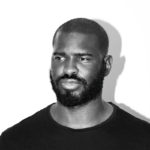 Darrell Malone is the founder and Technology Director of the National Police Data Coalition. He’s a senior software engineer who has worked on projects in the digital identity space for customers such as the Bill and Melinda Gates Foundation and the Department of Homeland Security. Darrell has been involved in civic tech since 2017 when he founded the Tubman Project, an effort to spur the development of AI powered tools for public defenders. His commitment to the protection of human rights and justice continues to drive his work in digital technology.
Darrell Malone is the founder and Technology Director of the National Police Data Coalition. He’s a senior software engineer who has worked on projects in the digital identity space for customers such as the Bill and Melinda Gates Foundation and the Department of Homeland Security. Darrell has been involved in civic tech since 2017 when he founded the Tubman Project, an effort to spur the development of AI powered tools for public defenders. His commitment to the protection of human rights and justice continues to drive his work in digital technology.
